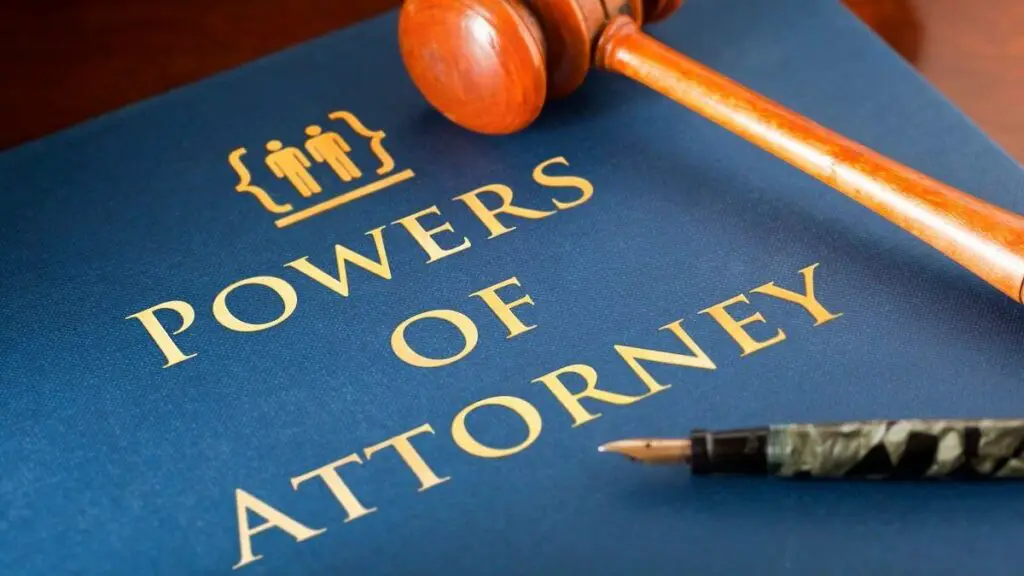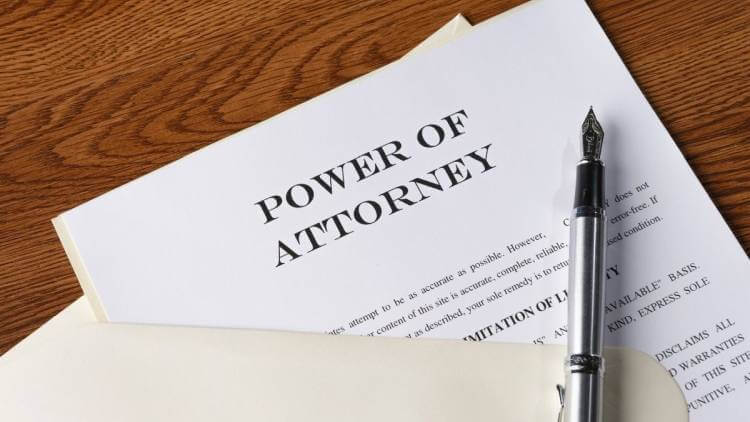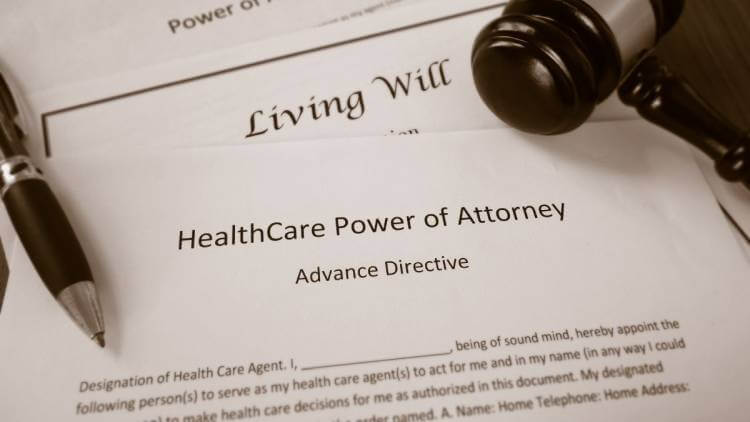A power of attorney, when used appropriately and ethically, can be a big benefit for the person who is not able to make sound decisions on their own behalf; however, there are countless situations where that could arise requiring someone to override a power of attorney.
A power of attorney (POA) is an excellent legal instrument that appoints someone to make decisions and manage the affairs of another person. They are strong agreements when used in a court of law.
Who has the authority to override the power of attorney?
Generally, the principal can always overrule a power of attorney if they are still of sound mind. A court can also override a power of attorney when it is deemed that the agent is not acting in the individual’s best interest.
What Is a Power of Attorney (POA)?
A power of attorney form grants a person (the attorney-in-fact or agent) legal authority over another person’s decisions (the principal) when that person is incapacitated. Legally, “incapacitated” can be a gray area at times, but there are general guidelines for it. The State of Virginia, determines “incapacity” as:
1. Has an impairment in the ability to receive and evaluate information or make or communicate decisions even with the use of technological assistance; or
2. Is missing or outside the United States and unable to return.
https://law.lis.virginia.gov/vacodepopularnames/uniform-power-of-attorney-act/
South Carolina defines it as:
(A) has an impairment in the ability to receive and evaluate information or make or communicate decisions even with the use of technological assistance; or
(B) is:
(i) missing;
(ii) detained, including incarcerated in a penal system; or
(iii) outside the United States and unable to return.
https://www.scstatehouse.gov/code/t62c008.php
The POA legal document has the power to authorize an agent to act on behalf of the principal. The exact rights of the agent are determined by the type of POA, financial or medical. Based on the document’s wording, they might be enormously comprehensive or highly restrictive.
Here are a few instances of legal decisions that an attorney-in-fact may be able to make:
- While the principal is away, the agent can perform administrative tasks.
- The agent can conduct monetary operations and open bank accounts.
- The attorney-in-fact has the authority to interact with third parties, such as banks, and sign legal papers on behalf of the principal.
- They can select suitable end-of-life medical treatment per the principal’s desires.
- The agent has the authority to submit taxes on behalf of the principal and sell or manage the property and real estate.
Typically, but not always, an individual decides who they want to act as their power of attorney in advance. So long as the person electing a POA is of sound mind, the POA has no power. When the principal becomes legally “incapacitated” and unable to make choices for themselves on topics such as banking, real estate, or company, a POA often takes effect.
The individual, for instance, may suffer from a mental disability, making it impossible for them to manage their own business. Their dementia could advance to a point where they’re no longer making sound decisions. They could have a stroke and be unable to convey their wishes. Also, a temporary POA may be necessary if the principal is in the hospital or on vacation and requires someone to make essential decisions until they return.
However, the principal must have full intellectual faculties and be aware of their options when selecting an agent and executing a power of attorney.
Different Types of Powers of Attorney
POA comes in different types. Each type grants varying levels of control and decision-making authority over the principal’s activities. Furthermore, each type specifies when and how long the POA is valid.
The following are the most common forms of POA.
Durable or Non-Durable
- There are two types of POAs: durable and non-durable. The former (durable POA) remains intact when the principal becomes legally incapable.
- Alternatively, a non-durable power of attorney will expire if the principal is no longer mentally capable. Unless indicated differently, a POA is durable in many locations.
Limited or General (Financial Power of Attorney)
- The most frequent type of power of attorney is a general power of attorney. This gives the attorney-in-fact extensive authority over the principal’s choices. These generally offer agent financial authority, so they’re also known as a “Financial POA.”
- On the other hand, a limited POA, a special power of attorney, only allows the agent to make decisions on particular issues. For example, they can sign specific papers on behalf of the principal.
Springing or Immediate
- An immediate power of attorney becomes legally effective as soon as the parties’ consent to the document.
- A springing POA comes into effect later, generally when the principal becomes incapacitated. Therefore, a springing power of attorney is seen as a durable one.
Medical Power of Attorney
- A medical POA, or health care POA, is limited to health care decisions. This is a durable springing power of attorney that is only used to make choices on the person’s behalf if they suddenly become unable.
This is one of the advance directive forms used in some states to ensure that loved ones know the right health care decisions for the principle as they approach death.
Who Can Override a Power of Attorney
Principal
The principal may desire to rescind the power of attorney document after being signed. For example, if they become mentally incapacitated, they may give management of their funds to a family member. If a family member steals or mismanages money, the principal may desire to override the POA and delegate authority to make critical financial choices to someone else.
Similarly, suppose family connections worsen, and the principal no longer thinks their designated attorney-in-fact is acting in their best interests. In that case, the principal may choose to revoke a power of attorney and elect a new agent. Only if the principal is still of sound mind may they override the POA.
However, there are times when someone other than the principal requests the legal document to be revoked. So, if you’re not the principal, can you override the power of attorney? Who may overrule a power of attorney if not the principal? Furthermore, what would be their justifications?
Family
Close family members, such as a partner, grown children, relatives, or a parent, are likely to be involved. This generally occurs when the agent abuses their authority and exploits the principal. Here are several scenarios in which a family member could want their power of attorney revoked:
- The agent is not operating to the greatest advantage of the principal and is depriving them of their property.
- When the principal created a power of attorney, they were not of sound mind.
- The principal is being physically abused by the attorney-in-fact.
Overriding a POA requires legal action, however.
The Process of Overriding a POA
If the principal is mentally capable, they can revoke a power of attorney at any time for any reason. It’s their choice, after all. It is legally possible to override the POA verbally, but that is not recommended. It is preferable to put the term “revoked” over the legal document, followed by the date and signature.
All third parties and organizations that have a copy of the POA on file should receive a copy of this version. They can also officially override the legally binding instrument by filling out revocation of power of attorney form. When in doubt, this should be done with the assistance of an attorney.
If you are not the principal, you can overrule a power of attorney through judicial action. The individual seeking to have the POA revoked must go to court and show that the attorney-in-fact is acting negligently or abusively.
The Principal
The first step should always be to speak with the principal. You may be able to persuade the principal to change their POA if you express concerns about misuse. This only works, of course, if the principal is of sound mind and the power of attorney has not yet been enacted as a result of being of sound mind.
The Agent
If working with the principal is not an option, the next step is to talk with the agent and demand that they relinquish their power. Sometimes the threat of court action is enough to persuade the principal if they know they have been acting in a questionable manner. This could avoid expensive and time consuming legal process. If this does not work, you should to use the services of an experienced law attorney to do this.
If/when the attorney-in-fact agrees, the document’s substitute power of attorney takes over the position of the attorney-in-fact. If no replacement agent is nominated, you will have to go through court to identify an acceptable candidate. If the agent refuses to withdraw the POA, go to the third step.
The Court
If the principal and the agent decline to override the POA, you can take the case to court. While in court, the judge must be satisfied that withdrawing power of attorney is the principal’s most significant advantage. You might accomplish this by presenting proof of agent rights abuse or demonstrating that the principal’s desire to maintain the attorney is due to mental impairment.
A court of law can override or cancel a power of attorney in various situations. The conditions might include the attorney’s actions that are not in the principal’s best interests. Suppose family or close relatives believe an attorney-in-fact is harmful to a mentally disabled principal. In such situations, you can bring a claim before a court for review and potential termination of the POA.
The court has the authority to overrule the power of attorney if the claims are shown to be true. In this scenario, the court may appoint a caretaker to manage the affairs of the mentally ill principal momentarily.
Suppose an attorney continues to make choices on behalf of an incompetent principal after such a period. In that case, a court can overrule the decisions and declare them null and void if the situation is brought to its notice. When the principal is no longer mentally competent, a non-durable POA is immediately withdrawn. The court, once again, is in charge of choosing a guardian for such a principal.
Furthermore, a principal must be of sound mind while awarding a POA. The document is legally void if it is found that a person of unsound mind gave the POA. As a result, a court can overturn a power of attorney.
How Do You Prove Abuse of Power of Attorney?
Power of attorney is a terrific method to outsource part or all your choices to someone else, mainly if they are more knowledgeable about the issue than you are or if you are ill. When it comes to who has the authority to revoke a power of attorney, the principal is the first to act. You may accomplish this by simply notifying the revocation decision, ideally in writing. However, you can also take the matter to court to override a POA. So, how do you prove abuse of power of attorney?
If you believe someone is misusing their power of attorney over a loved relative, you may need to file a petition to have the individual placed under formal guardianship. This lawsuit will revoke their power of attorney and put an end to the abuse. However, doing so can be difficult.
You may need to demonstrate that the other individual has been abusive. When the principal in question is a senior, this could include any type of elder abuse. Then you can go to court and seek records or provide proof of the mistreatment. As a result, consulting with an estate planning or elder law attorney might be beneficial. You should also report the abuse to your county’s or state’s adult protective services agency.
Power of attorney is a valuable and excellent tool for persons who cannot care for their financial or healthcare requirements on their own, but it can be misused. If you feel power of attorney is abusing a loved one, you should contact a reputable law firm as soon as possible.
Where to Find Legal Help?
Regardless of your decision, you should consult an attorney that is the greatest fit for you. Remember that the choices you make now will impact your future. In the end, the good lawyer will be the one that feels the most comfortable with you and your position. So, choose wisely and go with a lawyer who can relate to your situation.
FAQs
Does Power of Attorney Override Executor?
While you are alive, your executor has no authority to act on your behalf. The executor is permitted to act on a principal’s behalf only after their demise. So, is it possible for an executor to act on behalf of a still-alive person? No. That is the agent’s responsibility you select under your power of attorney. As a result, a power of attorney takes precedence over the executor.
Does Guardianship Override Power of Attorney?
In most circumstances, power of attorney is favored over formal guardianship since the individual being protected retains greater authority. However, guardianship may be a better option if judicial oversight is required. Guardianship also confers power on the guardian that third parties, such as banks, must acknowledge. Third parties are not obligated to allow a power of attorney agent to do business on the principal’s behalf.
Can a Power of Attorney Be Allow to Transfer Money to Themselves?
No. They cannot transfer funds without a valid reason and specific permission. While certain “power of attorney” documents include such transfers, a person with power of attorney is typically prohibited from paying money to themselves.




